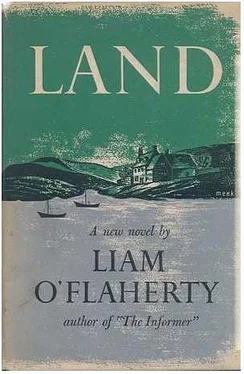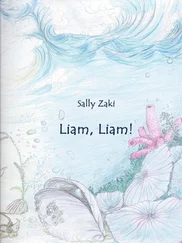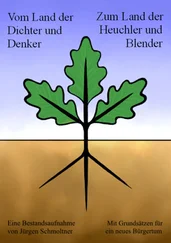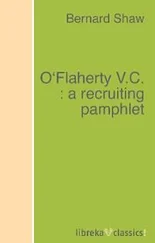Liam O'Flaherty - Land
Здесь есть возможность читать онлайн «Liam O'Flaherty - Land» весь текст электронной книги совершенно бесплатно (целиком полную версию без сокращений). В некоторых случаях можно слушать аудио, скачать через торрент в формате fb2 и присутствует краткое содержание. Город: London, Год выпуска: 2011, ISBN: 2011, Издательство: Bloomsbury Publishing, Жанр: Проза, на английском языке. Описание произведения, (предисловие) а так же отзывы посетителей доступны на портале библиотеки ЛибКат.
- Название:Land
- Автор:
- Издательство:Bloomsbury Publishing
- Жанр:
- Год:2011
- Город:London
- ISBN:9781448203888
- Рейтинг книги:3 / 5. Голосов: 1
-
Избранное:Добавить в избранное
- Отзывы:
-
Ваша оценка:
- 60
- 1
- 2
- 3
- 4
- 5
Land: краткое содержание, описание и аннотация
Предлагаем к чтению аннотацию, описание, краткое содержание или предисловие (зависит от того, что написал сам автор книги «Land»). Если вы не нашли необходимую информацию о книге — напишите в комментариях, мы постараемся отыскать её.
Land — читать онлайн бесплатно полную книгу (весь текст) целиком
Ниже представлен текст книги, разбитый по страницам. Система сохранения места последней прочитанной страницы, позволяет с удобством читать онлайн бесплатно книгу «Land», без необходимости каждый раз заново искать на чём Вы остановились. Поставьте закладку, и сможете в любой момент перейти на страницу, на которой закончили чтение.
Интервал:
Закладка:
“Great God!” he said aloud. “Great thundering God!”
He heard heavy footsteps come along the path. Raising his eyes, he saw Neville approach. Mr. George Sheehy, the Resident Magistrate in charge of carrying out the evictions, was shuffling along behind the landowner.
“Do you realise that we have only until to-morrow night before the writs expire?” Neville cried angrily from a distance. “We must get going at once. Didn’t you hear they are organising resistance?”
“You had better get your men on the march at once,” the Resident Magistrate said. “We are going to be pressed for time, if there is any trouble.”
Fenton clicked his heels and said gaily:
“I’ll proceed at once.”
As he strode away to get the column on the march, he kept smiling happily. Even after he had mounted his horse and taken his place at the head of his men, he smiled as he gave the order to advance.
He had been carried beyond reach of reality.
Chapter XXIII
The column marched due east from Killuragh for a mile at a rapid pace over level road. All the land on either side had been cleared of peasants. There were only droves of cattle and the scattered cabins of their herds in the big stone-walled fields. It was very hot and there was not a single breath of wind. Clouds of white dust hung motionless above the road, like rumpled gauze, behind the marching feet and the turning wheels of the supply carts. The sky was empty, except for an occasional crow that flew silently from tree to tree.
After they had passed the ruins of a small hamlet, the road turned north and began to rise almost at once. Mountains towered ahead. The men shortened stride. Now they had to put their feet down almost flat against the rough granite surface. Soon the whole column was engulfed by the rolling hills. Only small sections of its dark length were visible at a time, as it twisted back and forth round the sudden curves. The rhythmic crash of feet and the rumble of wheels were joined by the roar of torrents.
Up here there were great numbers of peasants. Their tiny cabins were scattered among the granite boulders that dotted the wild slopes. Patches of rye and potatoes, now ripening, made a quilt of green and gold against the grey background of the savage earth. Women and children stood in silent groups watching the column from a distance. They were half-naked. Hunger and fear made their faces look nearly as savage as the earth. Stunted animals also watched in silence. There were no men or boys in sight.
Fenton remained indifferent to his surroundings, or to the purpose of his journey, until the column had advanced nearly half a mile through the hills. Still smiling happily, he rolled from side to side unevenly with the walking movement of his horse, letting the reins dangle. Then an acrid smell roused him from his reverie. He sniffed several times, made a grimace of disgust and looked sharply to his left. There he saw a cabin built against a massive rock, only a few feet away and almost directly overhead. Unlike the other dwellings in the neighbourhood, it was skilfully thatched with woven rye straw. Its walls were newly whitewashed. A little yard, scarcely more than a ledge, was paved with flagstones and scrupulously swept. Both the door and the frame of the solitary window were painted green. Through the open doorway, he could see the cheerful gleam of polished delft ware on the dressers. An old woman sat facing him on a three-legged stool by the western gable. She looked neat like her house. She was wearing a red frieze skirt and black bodice. Her white hair was carefully plaited and tied in a bun at the nape of her neck. Her face was pale, with high cheekbones, dark blue eyes, thin lips and a beautifully shaped nose. Indeed, all her features were delicately shaped, like a person of good breeding. There was a fire of dried cow dung before her. A large black pot, in which indigo was boiling, hung over the fire by a chain that was attached to an iron bar set in the gable. She had just raised a piece of flannel from the brew on the end of a stick when she saw him look at her. She paused with the stick raised and returned his glance. Both the end of the stick and the piece of flannel were dyed a deep purple. She continued to look at him fixedly. Unlike the other women, who stared at the column from a distance, there was neither fear nor hatred in her eyes. At first they showed surprise. Then they became tender and compassionate. Deeply moved, he turned to his front. Just before his horse rounded a corner, however, he looked at her again. She was still looking at him with tenderness and compassion, as she held the piece of smoking flannel raised above the pot on the end of her stick. Then he lost sight of her. He shuddered and it seemed to him that a veil had been torn from his soul. His new happiness, which had until now merely intoxicated his senses, invaded his soul and drove out hatred. Shame was also driven out and remorse. But above all, he realised that he was now friends with these humble people, whom he had hated for many years simply because he had injured and oppressed them. Throughout his being, he felt a bubbling enthusiasm that he had not known since boyhood. His face shone.
Some few hundred yards farther ahead, unseen men launched a number of masssive boulders against the centre of the column from the summit of a precipitous slope, that was fan-shaped and hollow towards its base. So that the rocks converged as they rolled and struck together. Some shot into air. Others broke into fragments. The rest formed into a tumbling mass that finally came to rest in a dip of the road. They made a heap ten feet long and six feet high. The column was cut in two.
Fenton galloped back to the obstacle, dismounted and gave his reins to a constable. After climbing to the summit of the rocks he saw his Head Constable hurrying up the far side.
“Anybody hurt, Reilly?” he said anxiously.
Reilly called out after reaching the summit, enquiring if there had been any casualties. Sergeants answered from either side of the heap, saying that all had escaped injury.
“They broke ranks in time, thank God,” Reilly said, mopping his forehead.
“Send the auxiliaries from the rear,” Fenton said. “Put them to work at once, removing these stones.”
Reilly sent a sergeant to the rear for the auxiliaries.
“They chose their spot well,” Fenton said, pointing up the slope with his riding crop. “Must have somebody intelligent in command of them.”
The rocks had left clearly defined tracks, running crookedly from the summit in a wide arc to the narrow hollow at the base, like the ribs of an outstretched fan.
“It’s smart work all right,” Reilly said, staring up the slope. “It will take us an hour to clear the road. O’Dwyer is a smart lad.”
“You think it’s O’Dwyer?” Fenton said.
“Who else could it be, sir?” Reilly answered.
“Dare say you are right,” Fenton said as he climbed down from the heap.
The Head Constable stared in amazement after his superior. He could not understand how a man, who had been on the verge of panic and cowardice in the tent, could have so suddenly regained control of himself.
Butcher came running from the rear with his hat in hand. There were beads of perspiration glittering on his bald crown, between the strands of fawn-coloured hair that were drawn across the sallow skin. He halted on widespread legs before the boulders and glared at them.
“The swine!” he said. “I see their game.”
“Quite a clever game,” Fenton said with a patronising smile. “Don’t you think so?”
The two men looked at one another in silence, Fenton smiling and at ease, Butcher in a blind rage.
“It’s the last blow that counts,” Neville said at length.
Читать дальшеИнтервал:
Закладка:
Похожие книги на «Land»
Представляем Вашему вниманию похожие книги на «Land» списком для выбора. Мы отобрали схожую по названию и смыслу литературу в надежде предоставить читателям больше вариантов отыскать новые, интересные, ещё непрочитанные произведения.
Обсуждение, отзывы о книге «Land» и просто собственные мнения читателей. Оставьте ваши комментарии, напишите, что Вы думаете о произведении, его смысле или главных героях. Укажите что конкретно понравилось, а что нет, и почему Вы так считаете.












